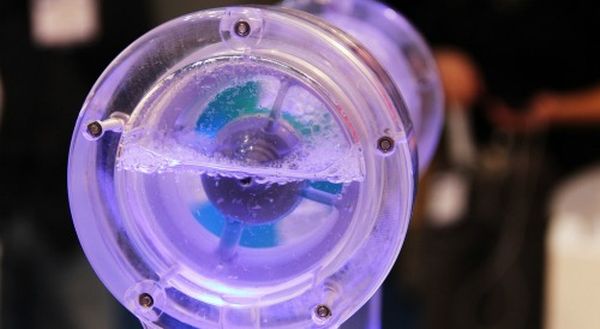Pipe leakages that lead to huge quantities of water loss have lead numerous water-tech companies all over the world to search for monitoring and repairing solutions. Often, these monitoring devices are dependent on electricity and are powered by batteries.
An Israeli startup named Hydrospin has developed a solution that incorporates micro-generators that produce electricity from the flow of water inside pipes. These generators produce enough electricity to power smart water monitoring and transmission devices that provide information on unusual water flow, leaks, or other problems.
Related Stories:
Cleantech Co Produces Low-Cost Electricity From Waves
Scientists Use Seaweed To Produce Biofuel
Hydrospin, based in Kibbutz Lavi in northern Israel, developed the generators based on two years of research to eliminate the need for batteries. According to CEO of HydroSpin, Gabby Czertok, most batteries have a lifespan of only two years. “The batteries are at the source of two problems: First, the used battery cannot be recycled, so it’s not environment-friendly. Second, replacing batteries is expensive and causes disturbance in the water networks during the replacement,” he tells NoCamels.
In-pipe electricity
The HydroSpin system, developed by CTO and founder Dani Peleg, consists of a set of unique in-pipe generators that generate electricity from the flow of water inside distribution pipes. The system is able to generate electricity without leading to water loss, te company says.
One advantage of this technology is that it allows better control of water networks due to the fact that sensors and measuring devices are no longer limited to locations that have access to electricity. With the HydroSpin generator, monitoring devices can be positioned anywhere in the water network.
Another advantage, according to Czertok, is that the transmission devices can transfer data continuously, 24/7, allowing customers to optimize their network. The data transmitted from the monitors to the server is no longer limited by the amount of energy available through batteries.
Sign up for our free weekly newsletter
SubscribeCzertok adds that “maintenance work to the system does not require any human intervention and can be done via a remote control. It has the advantage not to disturb the flow of water inside the pipelines.”
The company, founded in 2010, has launched several pilots in Israel – in Raanana and Kibbutz Lavi, and reports successful results. According to Czertok, the system generated enough energy to power the monitoring devices.
Cost
The HydroSpin system is relatively expensive compared to the regular battery system. But Czertok believes his technology can create higher return on investment. “Cities like London are spending huge amounts of money every year to replace the batteries of the monitoring devices,” he says. “In London, the city needs to replace 3,000 batteries every three years and each battery cost is high.”
HydroSpin is backed by Kinrot Ventures, the largest water seed investor in the world. The company was selected as one of Israel’s five most promising cleantech companies for 2011 by Israeli newspaper Calcalist. “The market for smart water systems will be over $20 billion by 2020, and HydroSpin “is riding a wave of something major that is happening in the world with our device,” said Czertok.
Photo courtesy of HydroSpin
Related posts

Resilient And Nutritious New Plant-Based Milk Aims To Make A Splash

Chocolate From Cultivated Cocoa Comes Without Environmental Toll

Plastic Fantastic: Startup Takes PVC Back To Its Crude Oil Roots




Facebook comments